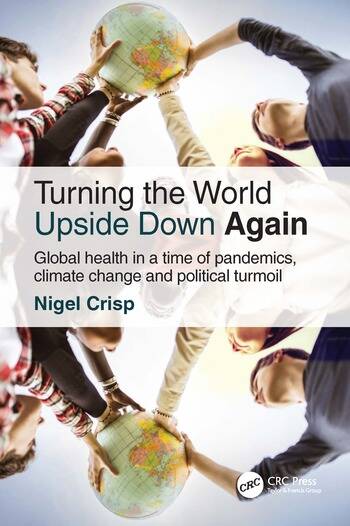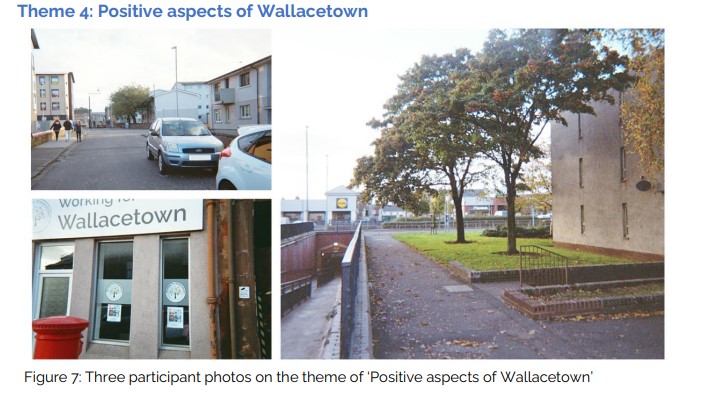A world where people rather than governments are taking a lead on health is explored in Turning The World Upside Down Again, the new book from health campaigner and former head of the NHS Lord Nigel Crisp.

Turning the World Upside Down Again is a follow up to his previous book Turning the World Upside Down, which explored how rich countries can learn from poorer countries when it comes to health.
Things we can learn
“Turning the World Upside Down Again pushes that story on 12 years. It also introduces some new ones and some new ideas about things we can learn from low and middle income countries,” Nigel tells C2.
“Twelve years ago, it was a world of optimism and there was a sense of global solidarity. Despite the financial crash, the British government and the American government were all pushing for the global sustainable development goals. Whereas now, there isn’t a sense of global solidarity, the world feels splintered,” says Nigel.
The book points out what middle income countries can learn from poorer countries, and how the ‘elite’ in any country can learn from poorer communities.
Change at a local level
“I think that the biggest changes now need to come at the local level in the UK and elsewhere. Since 2000 and the Commission for Africa there was a feeling that we could change the world coming from governments,” he says.
“We should start to think about global solidarity not in terms of countries, nations and governments, but in terms of people.
People to people
“People are connecting all over the world, but they’re connecting with people: not as government to government, but as people to people. We need to build a sense of global solidarity that’s around us as people rather than expecting governments to fix things,” he says.
It’s a theme that was very much alive in his Health Is Made At Home. Hospitals Are For Repair book, which went on to describe building a healthy and health-creating society.
It’s a change that includes training health professionals. Nigel points to a Lancet Commission he was part of 10 years ago about health education. It recommended that professional health care education have three stages: informative, formative and transformative. These would cover specialist knowledge, professionalism, and learning how to become a leader and take a role in changing the environment around you.
Pioneers
“This programme that started about 10-12 years ago is starting to have an effect,” says Nigel. “And, of course, there are the pioneers who have been doing this all along.”
“The way that Hazel Stuteley and David Aynsley worked with the young people in the TR14ers, for example, was very much somebody assisting people who knew what they wanted to do – assisting, guiding, supporting, not telling.”
Part of that needs different people coming into health care who are seeing the world in a different way. Medical schools need to recognize that they’re training people who are going to become agents of change, and leaders, says Nigel. He points out the stresses and pressures on GPs in the UK per head of population. Then highlights the extent of that in India, with villages in their millions.
A different way of thinking
“We have to have a different way of thinking about how health workers do it,” he says. It includes new ways of looking at health, wellness, and health creating, while not doing away with the well-trained, clinical parts of health.
“It’s not either-or,” insists Nigel.
But would a health system allow that change to happen?
“Too often we talk about health in terms of systems. But actually, stuff gets done by people. And relationships, always trump system. You’re never going to get a perfect system. You can have a good system and bad people and you won’t get anywhere. You can have a bad system and good people and you’ll get stuff done. Systems are important. Let’s try and make them as good as we can. But the important thing is people in relationships,” he says.
Policies
Nigel takes the same approach to policies.
“You do have to be careful with getting too hung up about policy or thinking that policies solve things.”
Policies have supported this type of approach in the past. Nigel points to the 1978 meeting in Alma-Ata (now Almaty), Kazakhstan. It set out that health was rooted in primary health care. And it described primary health care as multidisciplinary. The second paragraph even mentioned that the social determinants of health are key.
“All the countries of the world signed up to it, and none of them implemented it,” he says.
But there’s an awful lot of change happening at a local level with some people. Nigel points out two narratives: one is people-based the other is technology-based.
Health is a human contact sport
“Technology is helpful,” he says, “but actually, health is a human contact sport.”
That human contact is highlighted in one example that Nigel cites from the book. In a number of countries in Latin America and Africa, they have a special version of ‘community health workers’.
They are ‘not people who are responding to need – they’re people working within a community to discover need’. This idea of community health workers who are based in the community and have a responsibility to go and visit every household to talk to them about health issues, has come to the UK.
Inspiration
“The book describes this as being in one borough in Westminster. It is organized by a man called Matt Harris from Imperial College, who used to be a GP in Brazil. He’s imported the Brazilian model,” says Nigel. There are four people being mentored for such a role by Brazilian community health workers in Westminster.
“Their responsibility is to go and visit households on a regular basis and talk to them about health and other issues,” says Nigel. “It’s a proactive rather than reactive – most of healthcare is reactive.” It’s a model that is now being spread to three other areas.
Getting ahead of the game
It’s such a simple idea. To talk about health, rather than to be told about health. “But it is proactive, it’s getting ahead of the game,” emphasises Nigel. And that’ s just one example of what communities are doing for their own healthy futures. In effect, they’re turning the world upside down… again.
Turning The World Upside Down Again by Lord Nigel Crisp is published by CRC Press and available from them, bookshops and Amazon
Look out for webinars at Chatham House, Imperial College and universities.



